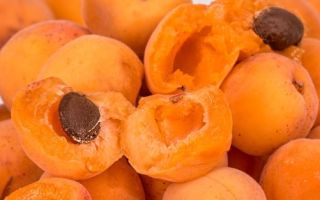Apricot is a tree that came to us from the Tien Shan.
Description and composition
Its fruits contain up to 27% sugar . Therefore, in many mountainous regions and in Pakistan, it is still widely consumed as food. Pakistani scientists have come to the conclusion that it is thanks to this fruit that there are so many long-livers in their country.
Biochemical studies have shown that 100 grams of fruit contains the same amount of iron as 250 grams of liver.
In dried apricots, the sugar content reaches 79%, of which 49% is sucrose .
Dried apricot pulp - dried apricots contains up to 1717 mg of potassium per 100 grams of product.
vitamin A content, apricot is not inferior to spinach and egg yolk, but vitamin C is contained in small quantities.
The seeds contain 30-40% fat and are used to obtain edible apricot oil.
Fruits contain various acids - malic , citric .
How to use for healing?
- For constipation, it is recommended to use dried apricots, but in season, fresh apricots also help.
- Dried apricots should be washed well and soaked overnight in warm boiled water. In the morning on an empty stomach, drink the infusion and eat the fruits, chewing them well. If constipation is persistent, then soak a new portion of dried apricots in the morning and eat at night.
- The presence of iron in apricots has a good effect on blood composition, and is especially recommended for those who suffer from anemia (anemia), which accompanies many intestinal diseases.
- The presence of potassium strengthens the heart muscle, so dried apricots are extremely beneficial for people suffering from cardiovascular diseases.
- Useful for children as a means of promoting health and supporting their growth due to the high content of vitamin A.
Who can apricot harm?
Since the fruits contain a lot of sugar, anyone who suffers from diabetes should limit their consumption or completely abandon it.
Dried apricots can disrupt intestinal function in people prone to diarrhea.







